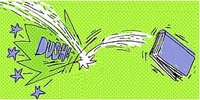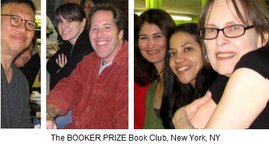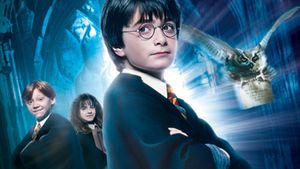 A recent quip from the New York Times about book clubs caught my ire. It’ll probably catch yours, too. So here it is…
A recent quip from the New York Times about book clubs caught my ire. It’ll probably catch yours, too. So here it is…
Gaggles of readers get together monthly to sip chardonnay and discuss the latest Oprah selection.*
Ouch. Don’t know about you, but that sounds a little…oh, I dunno… condescending? Not to get too upset about an analogy to unruly geese, but it’s kind of a potshot to all those who get together, out of a passion for literature, to talk (not honk) about something of value—books!
So…are mindless cocktail parties better? I’m just asking….
And what’s wrong with Oprah selections? —Breath, Eyes, Memory; Edgar Sawtelle; 3 Faulkner novels (Faulkner!); House of Sand & Fog; We Were the Mulvaneys. That’s some pretty good reading.
To counter that unfortunate “gaggle” image (nothing against geese…understand?), I offer, again, two defenses of book clubs: one by moi and one by Joshua Henkin, author of Matrimony:
- Book Clubs—Smarter than Critics?
An April 2008 post on LitLovers Blog quoting Josh Henkin- Saving the World—One Book Club at a Time
My March 2009 guest post on the literary blog, Books on the Brain
Oh, heck…maybe I’m just over reacting. Honk. Honk.
* Mokoto Rich. ”The Book Club with Just One Member.” New York Times, “Week in Review” section (1.24.10)
 Years ago a friend came across a sex scene in Nelson DeMille’s Gold Coast—a couple playing a masquerade to juice up their sexlife. It was so offensive to her she tossed the book across the room—all of which she proudly announced to our book club. (The offending passage involves Lady Godiva...on a horse, of course...very funny. There's an even funnier pirate scene later on.)
Years ago a friend came across a sex scene in Nelson DeMille’s Gold Coast—a couple playing a masquerade to juice up their sexlife. It was so offensive to her she tossed the book across the room—all of which she proudly announced to our book club. (The offending passage involves Lady Godiva...on a horse, of course...very funny. There's an even funnier pirate scene later on.)
What about you? Ever throw a book? I nearly did the other night. In my case, it had to do with the book’s heroine—dense, bratty (her own words turned on herself), and stubborn, in a very stupid way. It was all the more irritating because the book had started out with such promise.
What makes a book toss-worthy? What gets us so riled up that we want to throw it across the room? Is it anger … revulsion … disappointment … fear? And what sparks those emotions?
What's a toss-worthy reason?
• graphic sex or violence?
• offensive language?
• gross injustice?
• irritating characters?
• predictable plot lines?
• unrealistic coincidence?
• just plain bad writing?
But here's the thing...isn't it wonderful how literature evokes such passion? Think about it—books come to us as nothing more than tiny black squiggles on a flat white page…which we use to create meaning…which in turn inspires powerful responses. Astonishing…when you think about it.
 Check out LitLovers newest Featured LitClub—a brainy group of New Yorkers, who tackle the Booker Prize awards list (winners and nominees). That’s some impressive reading!
Check out LitLovers newest Featured LitClub—a brainy group of New Yorkers, who tackle the Booker Prize awards list (winners and nominees). That’s some impressive reading!
They also have a great idea for any book club—a Book Swap. The group organized a Swap at a library in SoHo (SoHo…ah, how cool izat?) in conjunction with a Peace Corp veterans book club. It proved so successful the library wants to make it a seasonal event.
The two groups are also considering a joint read and discussion. The Peace Corp group reads international books, which ties in beautifully with the Booker Prize list. *
* Britain’s Man Booker Prize is awarded to English-written novels by authors from the 54-member [British] Commonwealth of Nations, plus Ireland and Zimbabwe. Commonwealth nations include countries in Africa, the South Pacific, and the Carribbean, as well as Australia, Canada, India, New Zealand.
 It’s late in the game, I know. But I just finished reading ALL 7 HARRY POTTER BOOKS. I’d avoided them up to now because…
It’s late in the game, I know. But I just finished reading ALL 7 HARRY POTTER BOOKS. I’d avoided them up to now because…
1. They’re for KIDS
2. I don't like FANTASY
3. Way too much HYPE
4. I’m swamped with a long list of "MUST-READS."
Turns out, I was misguided—on all 4 counts. Apologies to the millions of HP fans—I’m now one of you. ICH BIN EIN HARRY POTTER-ER!!!!
Some thoughts on Harry Potter books
- They're complex—seven long novels with interlocking plots, details, secrets and characters. How did Rowling keep track of it all? Post-it notes… index cards… spread sheets… interlocking charts?
- They're funny—portraits on the walls that talk and leave their home frames to visit to their neighboring portraits. There are schoolbooks with titles like "Which Broom" and "One Minute Feasts—It’s a Miracle!" and much, much more.
- They're mythological—represent the archetypal hero's journey; peppered with parallels to Greek, Druid, and Norse mythology.
- They've got rich, long sentences—some real doozies, stretching out to 50 words! FIFTY! They’re lovely things, encouraging kids (and adults) to appreciate complex thoughts along with what it takes to express those thoughts.
Granted, the writing on occasion is clunky, the storyline over-plotted, and villains cartoonish—but all of that’s incidental considering the totality of Rowling’s project. I’m enthralled… and surprised that I am! If you haven’t read Harry Potter… do!
For book clubs, we have Reading Guides for all seven… with discussion questions.
 In my last post, I raised the issue of whether video games might someday inspire book-club-like-groups. Here’s a follow-up…
In my last post, I raised the issue of whether video games might someday inspire book-club-like-groups. Here’s a follow-up…
Jeff, my nephew showed up at our house (after I’d written the first post) with “Rain,” an adult mystery video game. As I watched him play, I found myself caught up in the story—unable to pull my eyes away from the screen, let alone leave the room to fix dinner.
The graphics were good, the storyline engaging, and the interactive nature allowed Jeff to make decisions on the part of his characters. And different decisions led to different outcomes.
What was surprising was how invested I was in the characters—yet I wasn’t the one holding the joystick! Jeff was the one holding the joystick—and he clearly cared about his people. After all, they could act only through him.
It's a bit like writing and reading a novel at the same time. Playing these games, you're both author and reader of the same work. How cool is that?
Prediction? I bet 10-15 years from now people will be meeting to talk about video games—just as we do about books. Given time, the plots and characters will grow more sophisticated and complex—with rich possibilties for discussion. We’ll talk about why we made the choices we did, why we developed the characters we did … and how outcomes varied from member to member.
Exciting but worrisome. One wonders about the future of BOOKS—stats on the number of folks who read them is increasingly dire. So one asks (well, I do) as wonderful as technology is, is it leading us backwards?
